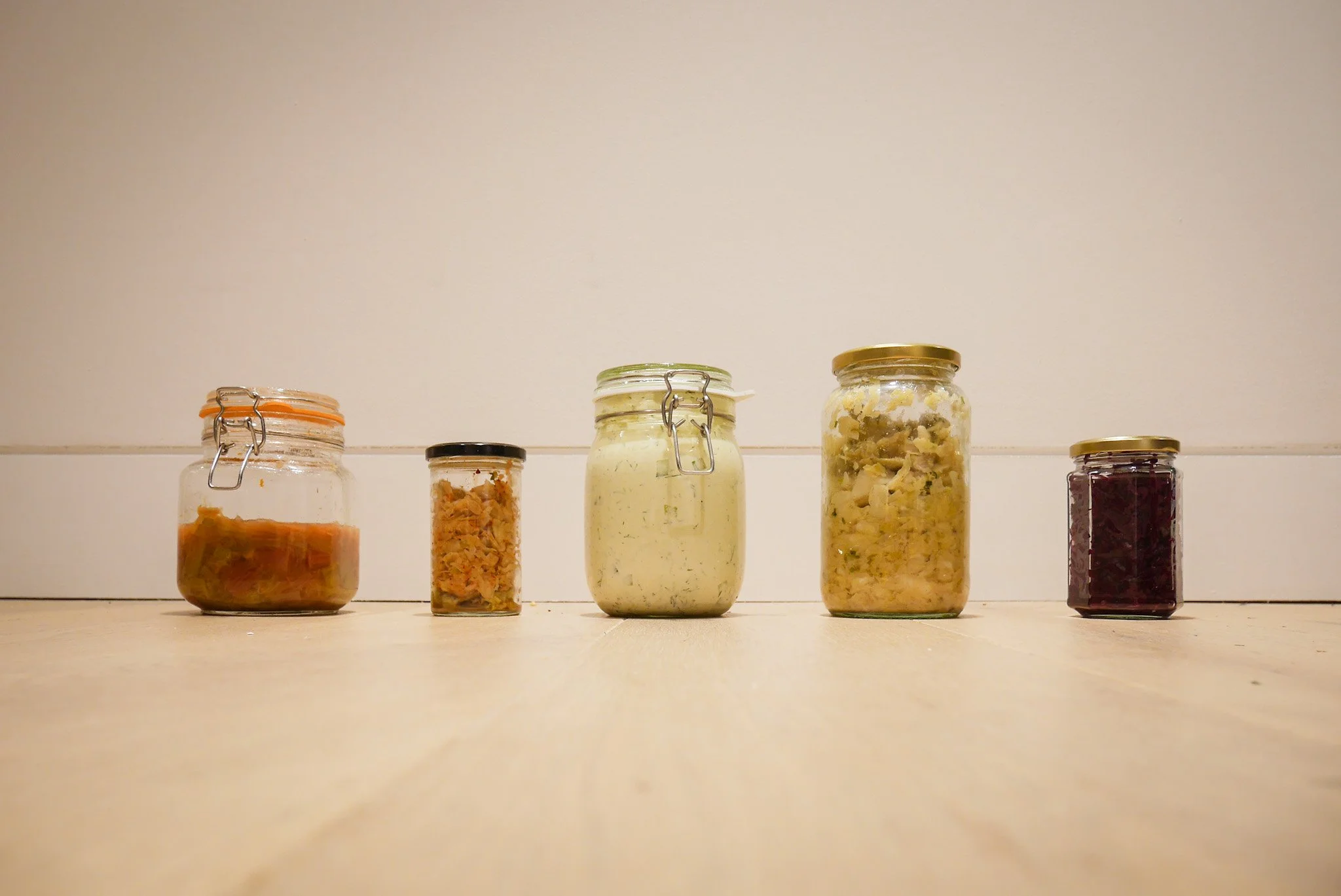
Fermenting Our Food System
— rethinking the role microorganisms play in our future food system
Microorganisms form complex communities that are intrinsic to the living systems we are all part of. Often overlooked by the human gaze, these microbial interactions play a crucial if not essential role to many of the human activities that we currently depend on, especially within our food system. Many of the processes that we take for granted, including agriculture, would not have been possible if it were not for these invisible microbes.
Fermentation is not just about preserving food or creating complex flavours. It is a fundamental biological process whereby microbes utilise different substrates to produce energy and other metabolites. A better understanding of the dynamics of these living systems, as well as a perspective of how different parts relate to each other, is a crucial in helping us rethink and redesign our future food systems.
Featured Projects
-
Waste Matters
Looking from the perspective of waste, I am investigating the potential of microbes in the transformation of side streams in primary food production. The intention is to rethink the way in which we consider and value resources within our food production systems, and create more circular and sustainable food systems.
-
Tasting Diversity
Using fermented foods as a model system, I am interested in understanding how microbes interact to form communities, what factors influence the diversity and evolution of these communities, and how does community structure influence taste and other human sensory perceptions.
-
Farming with Microbes
Through collaborating with farmers, food producers and other research partners, I am trying to understand how regenerative or agroecological farming principles can lead to increased soil microbial diversity, and how that in turn lead to more nutritious and better tasting food.